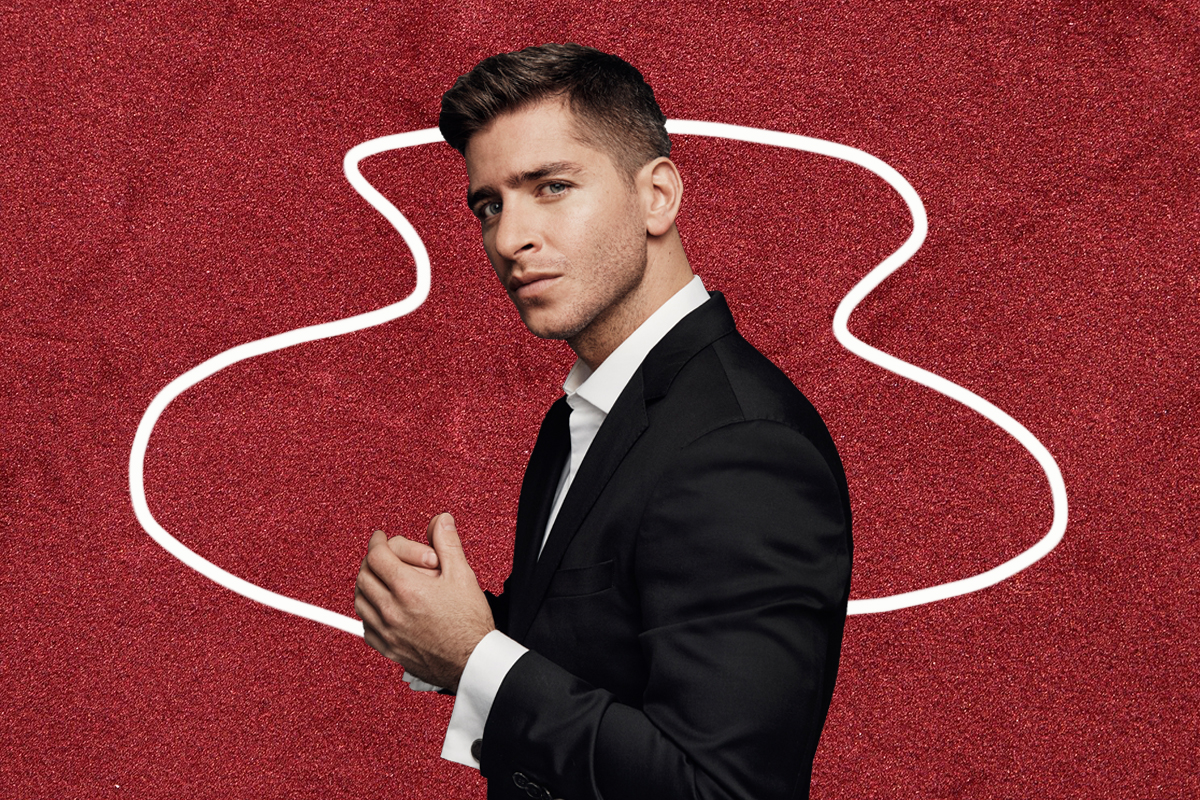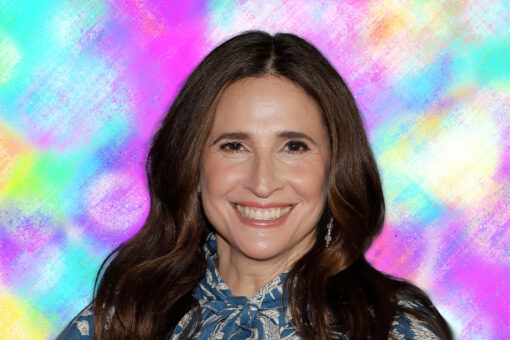In the new Amazon Prime television series Hunters, a group of vigilantes attempt to fight off a resurgence of Nazis conspiring to create a Fourth Reich in 1970s United States. Executively produced by Jordan Peele, the show features some Hollywood heavy-hitters, spanning from Jewish actor Logan Lerman to the legendary Al Pacino as Meyer Offerman, the leader of the rag tag of strangers trying to bring justice throughout the season.
As the series pivots back and forth between 1970s Manhattan and flashbacks to the era of 1940s WWII, a talented actor emerges, portraying the younger version of Pacino’s character — and his name is Zack Schor. What unfolds is a performance embedded with a very deep and personal connection to the story.
A Polish Jew by birth, both of Schor’s paternal grandparents are Holocaust survivors (his grandfather wound up in a labor camp outside of Budapest, Hungary) who met in Paris after the war, eventually moving to New York with his father. After graduating college with a BA in Theater Performance and studying in LA under acting coach Keith Boggart, he received the script for the show from his agents. The subject of the material — and his close connection to it — immediately drew him to the role of a young Meyer Offerman.
“Al Pacino had already signed on, so I knew I was auditioning for the younger version of [Pacino’s] character,” Schor told me over the phone about the audition process. “I prepared for it as I would for any other, and my personal life, I think, fueled an extra connection to the character.”
Once he secured the role, Schor found himself preparing both physically and mentally for the daunting task. From audition to the end of the seven-month shoot, he lost close to 35 pounds, learned Polish for character authenticity (“There were amazing dialect/language coaches and language consultants”) and heavily used material from author Elie Wiesel’s Night (a semi-autobiographical account of the author’s experience in Auschwitz) to help him get into the correct mindset. “The book painted an incredibly visceral picture of what it was like to be there,” he soberly mentioned. “That was hard to process a few times over, but it was a great tool in terms of getting myself to where I needed to be to play the character.”
The series took Schor to different filming locations, most being in upstate New York and parts of New Jersey, where sets were created to mimic the concentration camps built by the Nazis during this time period. But it was when he went to film in Budapest towards the end of the shoot, near where his grandfather was in the labor camp, that he felt the most connected to his roots throughout his time shooting the show. “There was something disturbingly realistic about it,” the actor tells me. “There was something very resonant about it that felt like I was exactly where I needed to be, which made the work really gratifying.”
When I asked him about his thoughts on the importance of the series coming out during an era where there is a resurgence of anti-Semitism in the United States, he pauses before answering. “We are living in a scary time where some extremists feel that they’ve been given a voice again. That’s one thing I feel needs to be battled head on. I also think it’s important for people to remember what happens when a political leader engages in fear mongering and enables hate rhetoric.”
He quickly mentioned that this show is not just about injustice towards the Jews — it’s about injustice towards all groups of people. “[The vigilantes] are this ragtag group of people that have been made to feel other. I think it’s important for us as a country to recognize where that kind of ideology leads. It’s not just a Jewish problem — it’s a human problem.”
As the show premieres 75 years after the liberation of the Nazi camps and the end of the Holocaust, I asked Schor whether this role helped him gain better insight into both Jewish history and his own ancestry. “I would certainly say that I have a better understanding; it feels like I came into it. I knew a lot about my family’s history and the basics of the Holocaust. But I dove into research — specifically about Auschwitz — on a level that I never had before. There’s something about this kind of material that transcends just that.”
He pauses before continuing. “I think that one of the ways that you reach people is through art and entertainment. Film and television is a meeting of those two things. My hope is that by telling this story, we can convey to a generation that might not be otherwise exposed to it the importance of fighting hate rhetoric head on.”
So what does Schor hope audiences take away from watching the series? His answer is surprisingly straightforward. “In simplest terms,” he replies, “the show exemplifies in a very real way a historical example of where we wind up when we engage in, allow, and don’t follow any form of hatred. That feels to me, ultimately, like the biggest takeaway.”
“If we can actively engage in more love and less hate, then maybe we’d live in a better world.”
Hunters premieres on Amazon Prime on February 21st.



